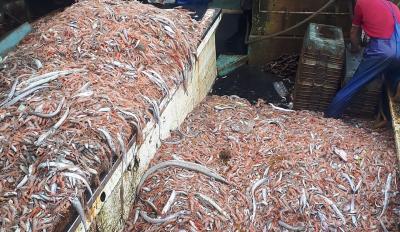
Publication Date:
Photo courtesy Rerum Novarum.
This report contains the comments of the Seafood Working Group (SWG) concerning Taiwan’s ranking in the United States Department of State’s 2022 Trafficking in Persons (TIP) Report. The TIP Report is a requirement of the Trafficking Victims Protection Act (TVPA). In 2021, the U.S. Department of State maintained Taiwan at its Tier 1 ranking on the basis that “Taiwan authorities fully meet the minimum standards for the elimination of trafficking.”
In 2022, the SWG finds that Taiwan should be downgraded to Tier 2 due to the government’s failure to meet the minimum standards as set forth in the TVPA, particularly in the following key areas: (1) failure to systematically identify trafficking victims; (2) inherent risks of human trafficking in the current employment system for migrant workers; (3) failure to regulate recruitment agencies and practices; (4) an impractical human trafficking law that prevents prosecution; and (5) and limited and ineffective partnerships with local and international NGOs.
Due to the existence of several policies that discriminate against migrant workers and provide insufficient protection, the migrant worker population has long been considered one of the most vulnerable groups in Taiwan. Most workers in Taiwan, regardless of their nationality, are protected by the Labor Standard Act (2020). However, migrant fishers working on Taiwanese distant water fishing vessels, as well as migrant domestic workers, have been left out by this law and are given fewer legal protections. Compared with nationals, these workers are at a much higher risk of forced labor and human trafficking. Despite NGOs’ reporting and the media coverage on migrant workers being abused and exploited, the Taiwanese government has taken a relatively passive attitude towards ensuring their rights and prosecuting those involved in exploiting these workers.
Recommendations
The Seafood Working Group asks the U.S. Department of State TIP Office to support the following recommendations to the Taiwan government and include the recommendations in the 2022 TIP Report.
- Abolish the overseas employment scheme for migrant fishers, apply the Labor Standards Act to all fishers, and ensure all migrant fishers are governed by the Ministry of Labor and thus afforded the same rights and protections as Taiwanese fishers.
- Establish a clear timeline for swift and full domestication and implementation of the ILO Work in Fishing Convention, 2007 (No. 188).
- Increase inspections on vessels of Taiwan-owned and flagged as well as Taiwan-owned and foreign flagged vessels, and prosecute the owners and senior crew suspected of forced labor, especially among the distant water fishing vessels.
- Deploy labor inspection personnel in foreign ports where Taiwan’s distant water fishing vessels are authorized to port, and train all maritime-related inspection authorities on victim identification and law enforcement.
- Increase transparency in the fishery sector by requiring disclosure of vessel position (i.e. publishing Vessel Monitoring System or Automatic Identification System, and punishing vessels for turning either off), 100% observer coverage (independent human or effective electronic catch monitoring, such as camera and remote sensor), and ensuring the safety of all observers on all fishing vessels.


